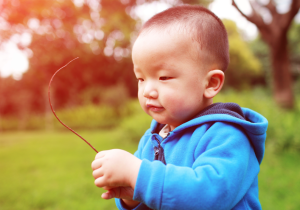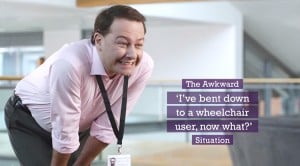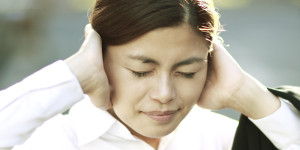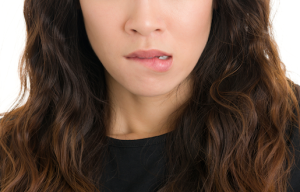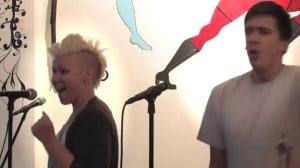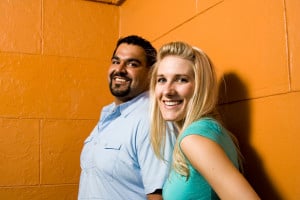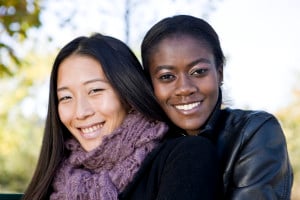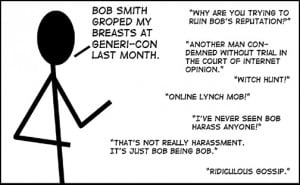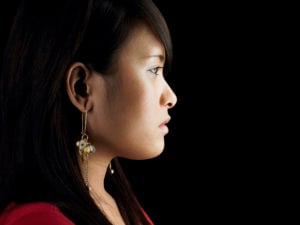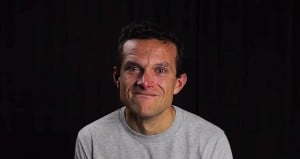
Source: Your Daily Word
“Why does the gay community segregate itself? Can’t we all co-exist?”
“But wouldn’t participating in a black cultural event show that I stand in solidarity as a white person?”
“As I guy, I need to talk with women about misogyny and let them know I support them.”
“But I’m an ally!”
Believe me, I know the feeling.
You arrive at an awesome conference brimming with solidarity. Scanning through the program book, you spot the perfect workshop title, and you’re pumped for the conversation! Someone finally gets me!
Then! The italics below: “Closed to trans identified participants only.” “POC only.” “For those who identify as women.”
Oof. The deep, gut-punch realization that even though you come with golden intentions and this potential conversation sounds safer than any you’ve encountered, this space isn’t for you.
Why can’t I join? Oppression also hurts me as an ally. Can’t we join together?
It sounds like you’ve come across a healing space.
Anyone who has participated in a healing space knows its value.
We’ve all been there – coffeetalk with your girlfriends about body image and diet culture, joining an LGBTQIA+ support group and not fretting over whether you’ll have to come out, going to an event to mark the end of Ramadan, free from the gaze of American Islamophobia.
You walk into the room and experience the relief of being among your people, whether they’re friends, family, or strangers.
In this space, you speak with a distinct freedom. You share what it is like to be you in the world without wondering if your voice will be steamrolled, if eyes will shift or roll, or if your experience makes anyone else in the room feel badly about their people.
For once you aren’t teaching; you’re healing.
But sometimes we get so super energized as allies that our memory of the importance of healing spaces can seem to fade away.
Denied access to another’s healing space, we suddenly feel hurt. Blocked from a conversation we desperately want to have, and confused about how to show solidarity.
It’s in these moments that we need to remember that being committed to a cause does not make us immune to perpetuating the problem. An ally taking up airtime in a healing space not only silences the voices of those directly experiencing oppression, but replicates the exact oppression we’re trying to address.
Healing Space, Segregation, Safe Space: What’s the Difference?
Healing Space: A space claimed by a marginalized group free from the impact of the dominant group.
Healing spaces go by a couple of different aliases: closed spaces, exclusionary spaces, identity alike spaces, and exclusive safe spaces.
They can be formal, as in a workshop closed to folks of a particular identity. But sometimes it’s not so spelled out.
Consider a lesbian bar, or a historical black church, or a youth hang out area: It’s not formally exclusive, but the space’s primary function is to reflect and nurture a particular identity. These are spaces that could be fractured by a group of men, white parishioners, or adult observers.
Wait, are you advocating for segregation?
Segregation isn’t a choice. It’s forced removal. Segregation doesn’t challenge oppression – it strengthens it.
Healing spaces are very different.
For example:
Asian Employee Group is a healing space marker because it indicates a choice on behalf of Asian employees to create community free from white supremacy. Remember José vs Joe? Institutionalized racism is alive and well, and the American workplace is no exception. Thus, the existence of this group challenges that status quo.
Western European Employee Group is a segregation marker because a dominant group is claiming space already given in society (that is, Joe is already hired over José). The existence of this group reinforces that status quo.
Unlike healing spaces, safe spaces don’t require that someone share a particular identity. Safe spaces simply require members to be accountable for the influence of the power and privilege they carry. So healing spaces may also be safe spaces under those agreements. Or they may not.
For Those On the Outside, It Might Hurt a Bit
A few months ago, I had brunch with two beloved friends who I had just introduced. Conversation quickly turned to our queer identities and family relationships. Within moments, my friends established a beautiful connection over a shared rootedness of their gender identities in their ancestors’ Indigenous Latinx cultures.
As they probed deeper and deeper, spinning into stories of ancient heritage, my voice began to drop off.
And I realized: My story doesn’t belong in this conversation.
I sat and watched as they leaned in and their eyes lit up at meeting someone who shared their story – who not just knew of it, but felt it.
Inside, my mind swirled: Why aren’t they including me? Neither of them has even looked at me in 30 minutes. I want to participate in the conversation, too!
And yet: I don’t have anything to share. I don’t actually have this kind of ancestral understanding of my gender. In fact, my ancestors probably colonized their land.
I sat in silence and mourned the distance I felt given my lack of a shared identity.
But what would it have meant for me to step in and ask my friends to take care of my feelings? What might it have done to their stories?
The celebration and solidarity they had built might have been muddied or shifted focus.
I was privileged to witness this healing conversation between two new friends, a place free from the impact of the dominant group. To insert myself into the conversation would be to centralize my whiteness in a space that was reveling in its absence. Instead, my role was to step back.
True solidarity means knowing that though we may experience oppression ourselves, we also can act in the role of the oppressor.
The world has few healing spaces for marginalized identities. Systems of oppression set the context in which marginalized groups are kicked to the curb in favor of privileged or dominant groups.
As a queer person, I experience heterosexism and cissexism differently than someone who doesn’t identify that way. I find deep comfort in communities of other queer people. In those healing spaces, I find reclamation from pain and discover untold strengths in shared experiences. The tears flow, the laughter roars, and I am held.
And yet, I know many of my friends need healing spaces without me.
As an ally, I know that my experiences with oppression do not give me access to all experiences of oppression or relieve me from responsibility for my privileged or dominant identities.
And I honor that sometimes I can’t contribute shared experiences to the healing spaces of others because my own privileged or dominant identities contribute to their need for them.
How Am I Supposed to Know When It’s a Healing Space?
Sometimes it’s unclear when you’ve come across a healing space, so let’s check out a few scenarios.
1. The Disinvite
A crew of your friends who are First Nation are going to a Pow Wow on Friday night and don’t invite you. You are not First Nation, but you really want to go and are feeling hurt.
What do you do?
Consider why you want to go, and locate the ouch.
Do you want to learn about Pow Wows and First Nation culture? Find what’s going on through Media Indigena or check an introductory book! Explore some recorded Pow Wows on YouTube.
Do you miss your friends? How about lunch tomorrow?
Do you want to become engaged in Indigenous folks’ activism? Read Vine De Loria’s Custer Died for Your Sins, check out some of the work of Suzan Shown Harjo, and stay up to date on Indigenous experiences of oppression and activist possibilities!
Do you feel a bit sad or unwanted? Sit with that. Consider how marginalized groups experience similar feelings in their daily lives. Speak to other allies.
2. Do I Belong Here?
A queer women’s group has opened up at the LGBTQIA+ center. You’re new to town and want to find community. You identify as a trans man, but didn’t feel safe when you attended the queer men’s group. You wonder if maybe you could check it out.
What do you do?
Check in with yourself and the space. Is this space exclusive to those who identify as women? Or is it for those who somehow identify with a female gendered experience?
Identify what you are seeking from this space. Are you looking to discuss your experience being misgendered female? Or are you looking to socialize? These are different things that will differently impact the healing space.
Know thy self!
3. The Looking Glass
You’re with a group of straight friends, and they want to go dance at a gay bar. Or you’re traveling with a group of non-Muslim friends, and they’re curious to check out a mosque during prayer. You’re feeling a bit funky about whether or not this is cool.
What do you do?
Notice a pattern yet? Check in with yourself and your group: What are your intentions? Are you looking to dance or do some experiential learning? Is there any other way you could achieve those goals? If you do choose to go, minimize your impact on the space.
Rolling 12-deep and loudly staking out the center of the dance floor is different from subtly participating in the existing culture of the bar. Find a mosque that offers tours that don’t disrupt worship. Work with your friends to better understand their intentions.
As an Ally, Healing Spaces Are About Stepping Back — And Finding New Ways to Step Up!
As you move forward in your quest for social justice, follow these few steps to stay mindful of healing spaces – the ones that are yours, the ones that are theirs, and the ones that we share together.
1. If it’s clear it’s not for you, do not go.
Seriously. Don’t.
2. Breathe.
Part of honoring healing spaces is stomaching the hurt that oppression is real: It’s in your family, your friendships, your workplace, your neighborhood. It is part of your everyday life. You are a part of it.
No need to resist feelings of sadness, shame, frustration, and even anger. Allow them to wash over you and mourn. Spend time exploring where your sense of loss comes from, and channel that loss toward rebuilding.
3. Check in with yourself.
Still navigating your identities? Unclear on how you benefit from power and privilege? Check in!
Do some fierce identity exploration. What is it like to be you in the world? Beverly Daniel Tatum wrote a great piece on understanding the complexity of identities.
Talk to members of marginalized groups about what it’s like to be them in the world. Notice the differences. Ask friends about their experiences of outsiders entering their healing spaces. Notice how your identities impact the spaces of others, and where your identities are associated with dominance and privilege.
4. Acknowledge your privilege.
Did I ask for that privilege? No. Does it hurt? Yes. But do I ignore it? Absolutely not. Take that self-awareness and turn the energy outward.
Begin to push back on your privilege and check out this excellent ally guide. You’ll notice that translating your energy into purpose benefits you directly and also helps you build like-minded communities!
5. Engage your people in conversation.
You may be the first to raise questions of identity and power and privilege among your friends, family, or community. This can be scary, but it is one of the most important places for work!
Here are tips for talking about privilege to folks who don’t know what you mean. Expect your friends to embark on the same journey that you are on – to be their best selves and to honor the ways our different experiences create different needs.
Your Ultimate Charge
In Our Dead Behind Us, Audre Lorde stated, “It is not our differences that divide us. It is our inability to recognize, accept, and celebrate those differences.”
Respecting the healing spaces of others does not mean you do not have a role in our shared struggle for justice. Instead, it’s an invitation to engage and support one another in a way that honors our differences.
Stay in conversation with yourself. Breathe. Stay in solidarity with others. Learn. Stay focused on healing. Listen. You got this!
[do_widget id=”text-101″]
Kel Kray is a Contributing Writer for Everyday Feminism and a fiercely friendly social justice warrior who spends their days advocating with and on behalf of queer youth at an LGBTQIA+ youth center in Philly. A righteous product of the Midwest, Kel earned a Bachelor of Women’s Studies at the University of Wisconsin-Madison and a Master of Social Work at the University of Pennsylvania. When not shaking a fist, Kel can be found wearing printed leggings, eating a hearty casserole, and doing a crossword while their snugglebuddy Tum Tum Geraldine naps on their lap. Follow Tum Tum on Instagram @peeping_tum. Read Kel’s articles here.
Search our 3000+ articles!
Read our articles about:
Our online racial justice training
Used by hundreds of universities, non-profits, and businesses.
Click to learn more





